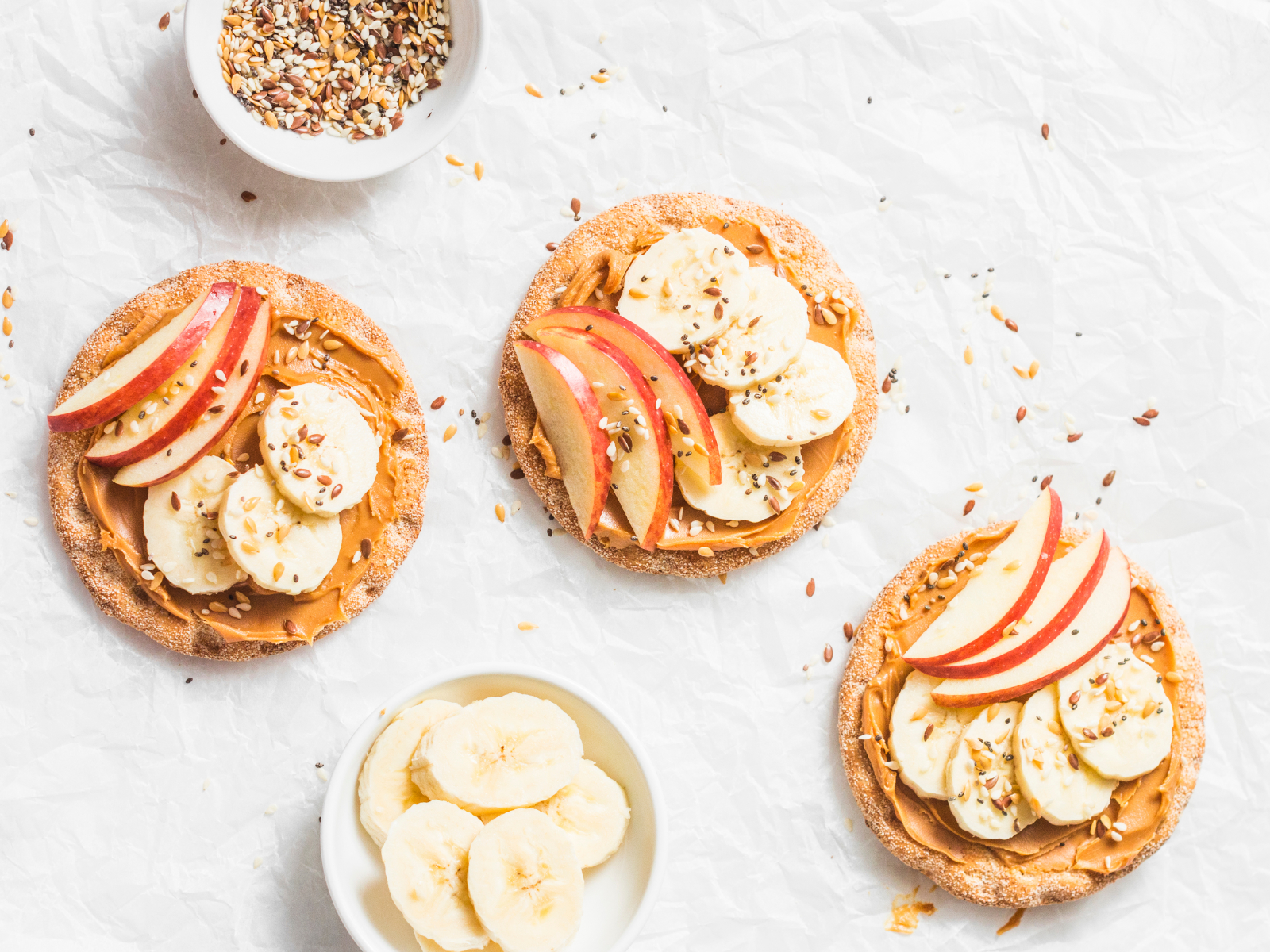It’s 2 P.M. You’re taking a quick break from working and suddenly, hunger strikes. It’s time to have a snack, but what do you choose? With thousands of quick, easy options when it comes to a morning or afternoon snack, it can be overwhelming to know what’s worthwhile. Incorporating a few healthy snacks into your everyday eating routine can be a great way to curb hunger during meal gaps while also maintaining your energy. We picked the brains of some experts who recommended their top tips when it comes to mindful, healthy snacking habits.
Related: Sign up to receive delicious recipes, expert advice, and shopping tips in your inbox!
1. Have a plan.
One of the best ways to maintain consistent healthy snacking habits is to plan out your snacks ahead of time. Autumn Beam, LDN and chief nutrition officer at Hope Wellness recommend putting snack ideas on your weekly shopping list.
“You don’t have to ‘schedule’ them necessarily, but know which snacks you want to have available that week and have them on your shopping list,” she recommends. “For instance, single-serve protein hummus and carrot sticks or trail mix with an apple. Have them ready to grab and go! Also, by planning it you’re working smarter because you’re reducing the chance of grabbing whatever sounds good at the moment because you’re hungry.”
2. Do limit, but don’t cut it out completely.
One of the most important pieces to maintaining healthy snacking habits is not to restrict yourself from foods you actually enjoy. Banning certain foods from your diet will most likely lead to falling off track with healthier eating. It’s okay to give in to those cravings every once in a while. However, it’s important to pick snack foods that will give you that energy your body is craving during that mid-afternoon crash.
“While there isn’t a specific food group to steer away from with snacking, I would, in general, limit highly processed, simple carbs and refined sugars,” says Dr. Bethany Tennant, a naturopathic physician and certified nutrition specialist. “These foods lead to quick energy and glucose spikes followed by a crash that can leave one feeling hungry, low energy, and low mood.”
3. Pair a carb with a protein.
To really get the most bang for your buck when it comes to healthy snacking habits, try creating a snack that is stacked with carbohydrates and protein. Not only will this help repair any muscle damage done during your morning workout, but such a hefty snack will curb any hunger to spring up before your next meal.
“Pairing foods like this provides your body with a steady amount of protein throughout the day for muscle repair and growth, helps you feel fuller longer, and helps keep your blood sugar stabilized better than having a carb-rich food by itself,” says Melissa Boufounos, CHN, a sports nutritionist and owner of MB Performance Nutrition near Ottawa, Ontario.
“For example, pair a granola bar with a glass of milk or an apple with peanut butter,” she continues.
“Add avocado to rice cakes, or a nut butter to an apple, hummus with veggies, olives with slices of deli turkey, or add in chia seeds and almonds to a yogurt,” says Dr. Tennant. “This strategy will help balance blood glucose levels, appetite, energy, and mood.”
Related: The Best Snack Combination for Your Blood Sugar

Shutterstock
4. Take your snacks with you.
We’re busy people. Our on-the-go lifestyle makes it that much harder to find the time to snack smarter. That’s why it’s important to give yourself options throughout the day.
“Have options with you to prevent an impulsive vending machine or gas station stop,” Dr. Tennant recommends. “Consider a trail mix that you can keep at work or in your car, beef jerky sticks you can have in your bag or purse, fruit and almond butter jar, or even individual packets.”
5. Don’t snack to crash.
There are some snacking choices we can make that may seem delicious and satisfying at the moment, however, the long-term effects might not be what we’re looking for. Limiting snack food that is high in simple carbs or highly processed could help you avoid that tired, crashing feeling some of us get at midday.
“I would in general limit highly processed, simple carbs and refined sugars,” says Dr. Tennant. “These foods lead to quick energy and glucose spikes followed by a crash that can leave one feeling hungry, low energy, and low mood.”
6. When in doubt, snack it out.
While snacking is not 100% necessary when it comes to daily food intake, it’s hard to go meal to meal without something to snack on in between. That’s why it’s important that when planning out snacks, you opt for something of substance to keep you satisfied and to prevent all-day grazing that can lead to overeating.
“A healthy snack is a great idea to prevent grazing and grabbing processed foods. You don’t want to go more than 4 hours without eating,” says Kimberly Nanninga, RD.
Read next: The 6 Best Protein Snacks to Always Have On Hand
The post 6 Healthy Snacking Habits Nutritionists Recommend appeared first on Clean Plates.
